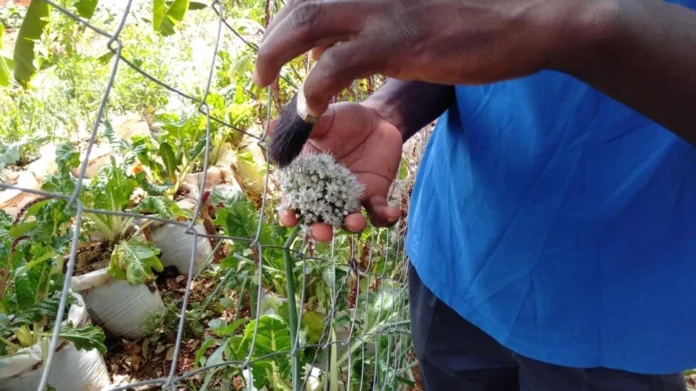Joseph Mbithi, a farmer in Mbakoni village, Makueni County, is now using human methods to pollinate his crops after excessive use of pesticides which has pushed pollinators away from his farm.
He notes that the lack of pollinators has led to reduced yield on his farm for two consecutive years. Mbithi blames the absence of natural pollinators on the use of chemicals such as herbicides, insecticides, and nematicides.
“We are mostly affected by pesticides because they have killed most pollinators which pollinate our crops– this has affected our food production compared to previous years. Pollinators such as bees and butterflies are not around due to chemicals which we spray in our farms,” said Mbithi.
To boost production, Mbithi transfers pollen grains from male plants to female plants by hand. He learned the technique after a training from a local agricultural organization. He uses a toothbrush, a homemade brush and a soft sponge to hand-pollinate.
New Planting Method Increases Napier Grass Yields by 20 Percent and Milk Yields by 50 Percent
”The flowers are different in shape and are different in size. The male one is bigger than the female. When I am doing hand pollination, I normally pick pollen from the male first, and then I apply it to the female…If there is no pollination, most of them normally dry up,” said Mbithi.
How to Encourage Pollination on Farms
According to Samuel Nderitu, a Kiambu farmer who pollinates about one hundred crops each day using locally made brushes, planting different crops and constructing water pans near the farm encourages pollination. He grows maize, beans, sorghum, pumpkins and spinach on his farm.
”We encourage crop diversity by growing different types of crops that will create a habitat for the pests and insects that will do pollination work,” said Nderitu.









